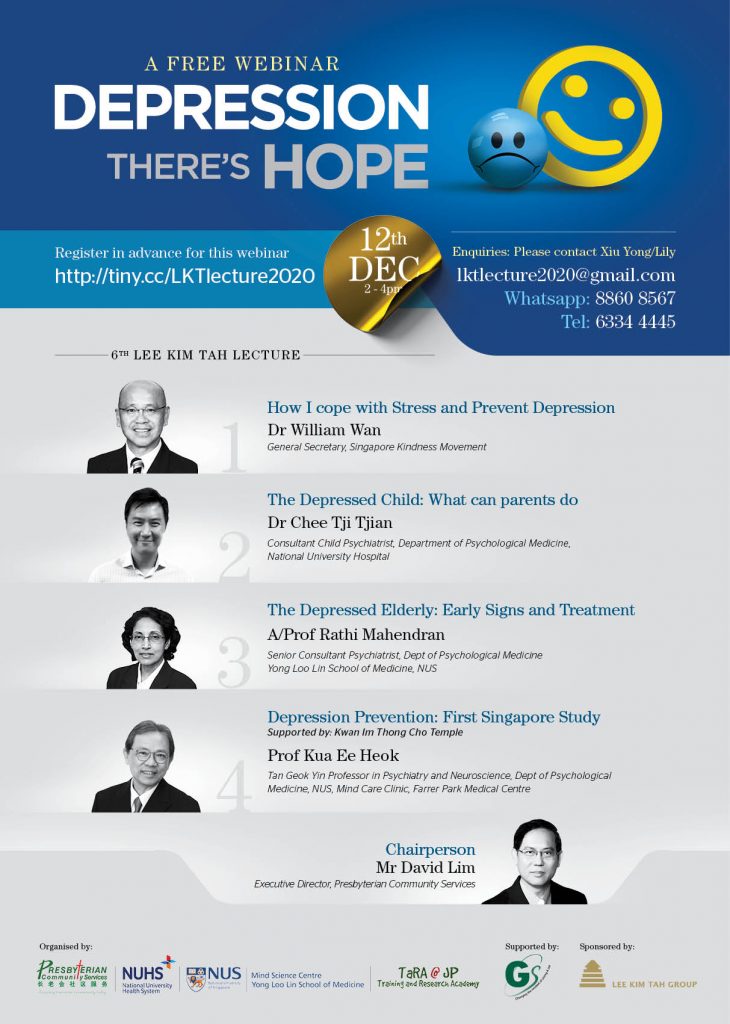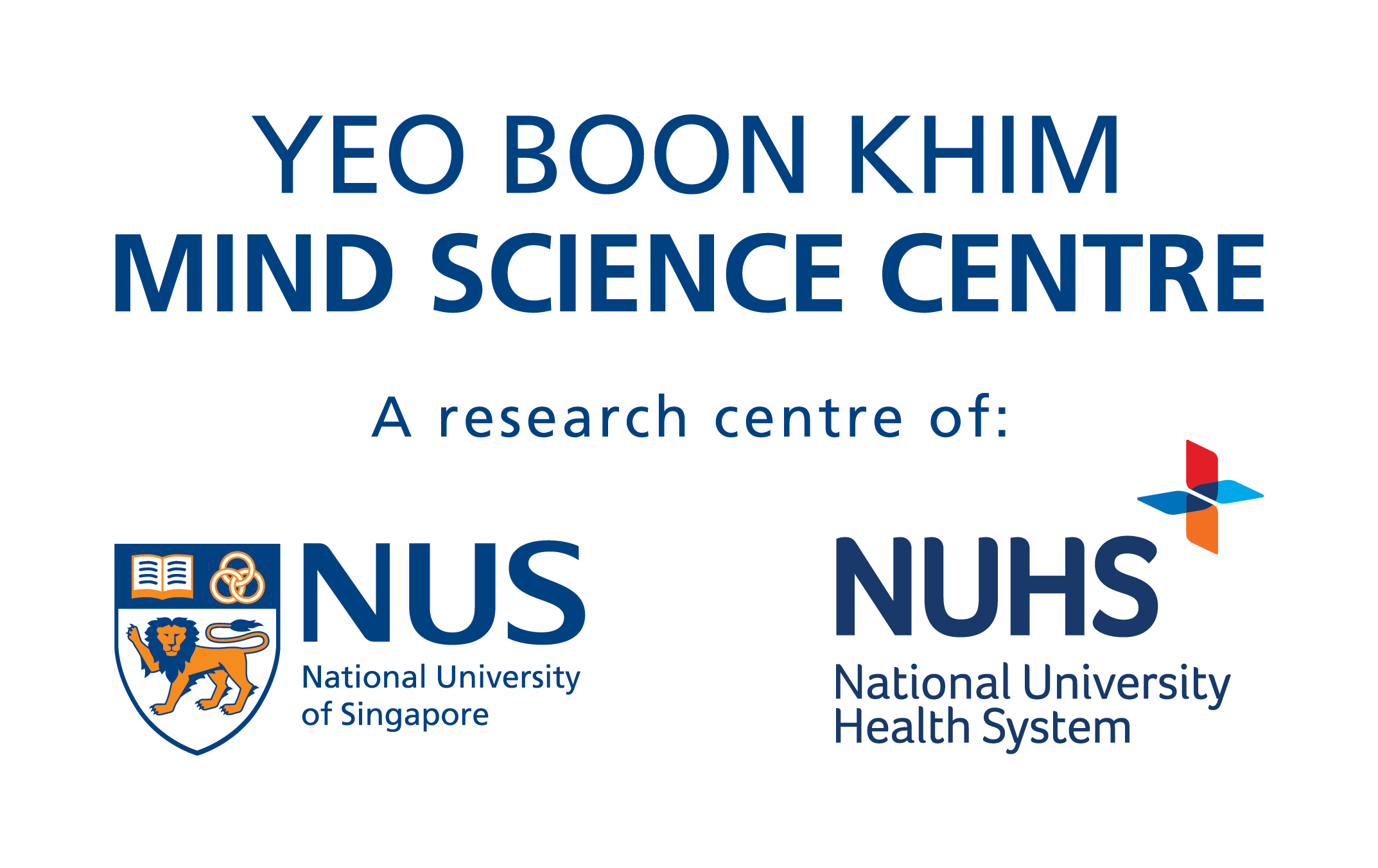NUS GREATER GOOD SERIES – RESILIENCE ACROSS THE AGE CONTINUUM
The National University of Singapore (NUS) Greater Good Series kicked off the year with a most pertinent topic in our fast evolving and challenging times: Resilience Across the Age Continuum. The event was held in conjunction with the 40th anniversary of the NUS Department of Psychological Medicine and the 5th NUS International Academic Psychiatry Conference.
In his welcome address, Associate Professor John Wong, Director of Mind-Science Centre and Lin Jo Yan and Yeo Boon Khim Professor in Mental Health and Neuroscience, NUS thanked the many donors who have contributed both time and research grants to the Mind-Science Centre over the years – vital factors that fuel research and the translation of research and its translation into community programmes, as well as population-based programmes in building resilience for everyone.
Ms Sim Ann, Senior Minister of State, Ministry of Communications and Information and Ministry of Culture, Community and Youth, gave the opening address. She remarked, “Resilience can be understood as the ability to adapt to adversity, overcoming obstacles in life and emerging stronger for it. As a start, one important aspect that we can tackle together is to reduce the stigma of talking about mental health and illness. There ought not to be any shame in seeking help, which is a positive response to adversity in life, and it contributes to the resilience of the community as well.”
“In recent years, there has been an increase and consolidation of public sector resources devoted to helping seniors age well. Some of you have donated generously towards research efforts and some of you are directly involved in work that helps those with mental conditions recover and become more resilient. As a community, there is much that we can do and we have begun doing so,” commented Senior Minister Sim.
Professor Norman Sartorius, Inaugural Speaker of the Tow Tiang Seng Distinguished Lecture Series, President of the World Psychiatric Association, & Former Director of Mental Health, World Health Organization
The emphasis of involving social groups, such as family, volunteers, teachers etc, in building resilience was continued by the evening’s keynote speaker, Professor Norman Sartorius, President of the Association for the Improvement of Mental Health Programmes, and Former Director of the Division of Mental Health, World Health Organization.
Prof Sartorius commented that life expectancy has increased but unfortunately, the additional years are usually filled with chronic ailments and that many people would have more than one illness at the same time. And yet, the fragmentation of medicine into finer and finer specialities continues, with treatments provided by departments usually in solo and not in tandem.
“Increase in resilience of the individual is only possible with an increase in resilience of the community. Physicians alone are just one small part. It is the job of society to raise the level of resilience, but can we do it?” queried Prof Sartorius.
A key area for leadership to invest in is the primary prevention of mental disorders, where studies have demonstrated that about 50 per cent of all mental and neurological disorders are subject to primary prevention.
Some of the areas that we could look into include: teaching doctors to be better listeners; parents giving more time to their children and teaching them how to overcome problems, with much less reliance on mobile phones and television; school teachers teaching students how to manage stress and to solve problems; and better equipping volunteers and caregivers with knowledge and training.
While medical advancement will continue to offer better treatment, it alone is not enough in raising resilience: individuals and social groups should pull their weight and take part in building resilience for loved ones and society as a whole, especially with primary prevention efforts. Prof Sartorius’ parting words were clear and emphatic: “Resilience is a big goal, and it requires attention and involvement from all of us.”
The NUS Greater Good Series features talks by leading minds on topics related to philanthropy. These include generosity, giving and service to the community, as well as leadership, personal well-being and mental resilience. The Series aims to raise awareness of philanthropy and its impact on society. The Series was made possible thanks to a generous gift from Newsman Realty Pte Ltd.
This article first appeared on: http://giving.nus.edu.sg/nus-greater-good-series-resilience-across-the-age-continuum-2/

